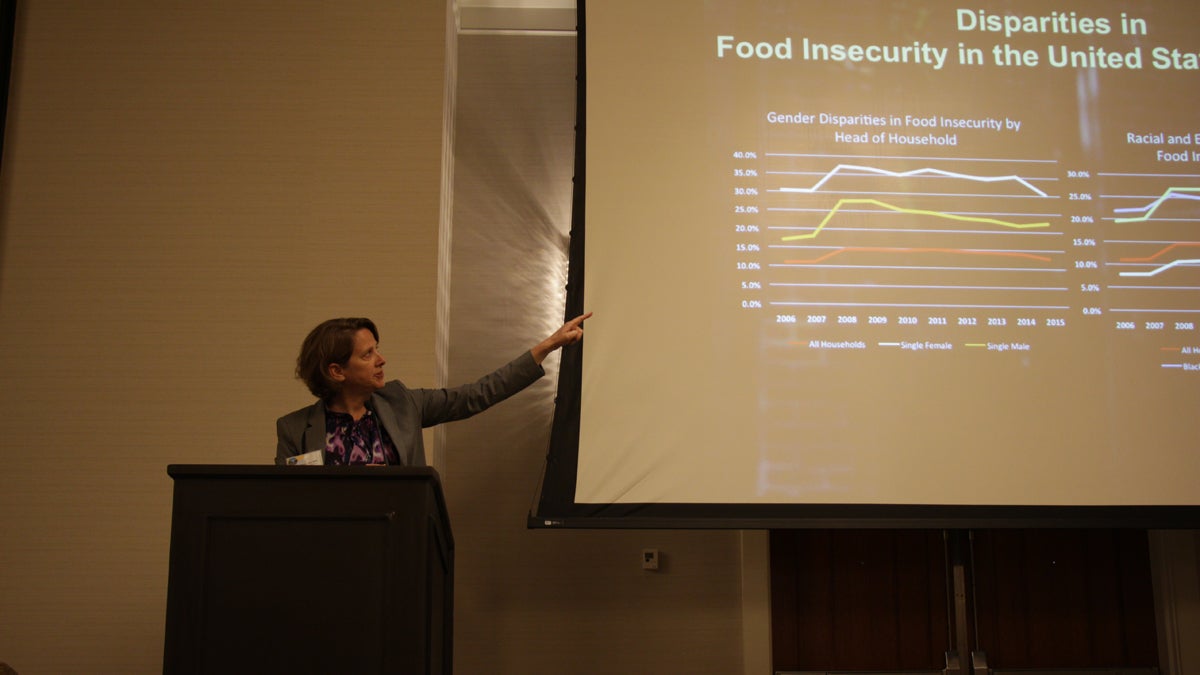Nutrition policy advocates fear cuts to food stamp program

Mariana Chilton of Drexel University's Center for Hunger-Free Communities presents at a symposium on nutrition policy in Philadelphia last Friday. (Courtesy of Anne Albright/University of Pennsylvania Prevention Research Center)
Public health and nutrition policy experts who spoke at a symposium in Philadelphia last week said they were concerned about the future of federal programs like the Supplemental Nutrition Assistance Program (SNAP)–also known as food stamps–that help feed millions of the poorest Americans.
The Friday symposium, which was organized by the University of Pennsylvania’s Prevention Research Center, included presentations about a range of policies seeking to promote healthy eating and address public health issues like obesity. Several of the event’s speakers said potential cuts to SNAP could jeopardize the nation’s health.
“I’m concerned about SNAP–I’m concerned about the food stamp program,” said Tracy Fox, a nutrition policy consultant who gave a talk focusing on federal programs at risk. “The benefit isn’t high enough now, and I think there will probably be proposals to make the benefit smaller and restructure the program,” Fox said.
About 44 million Americans currently rely on SNAP benefits. Changes to the program could be made next year when it goes up for renewal as part of the Farm Bill. The budget plan put forward by House Republicans last year called for funding cuts to SNAP and converting it into a block grant program, which would put a cap on the amount of food assistance money going to each state. Supporters of block-granting the program say it would give states more flexibility in how they use the funds.
But SNAP advocates say that approach would ultimately result in less money to address food insecurity, and more people going hungry.
A keynote speaker at the symposium, Mariana Chilton of Drexel University’s Center for Hunger-Free Communities, presented results from an ongoing research study looking at the association between SNAP benefits and health.
Chilton said that shrinking SNAP would threaten the physical and mental health of people receiving benefits.
“Food insecurity is related to poor cognitive, social, and emotional development in children,” she said. “We also know that food insecurity is related to depression and poor health among caregivers of young children.”
When needy families are on food stamps, Chilton said, “they’re more likely to be healthy, and they’re less likely to be hospitalized.”
WHYY is your source for fact-based, in-depth journalism and information. As a nonprofit organization, we rely on financial support from readers like you. Please give today.

